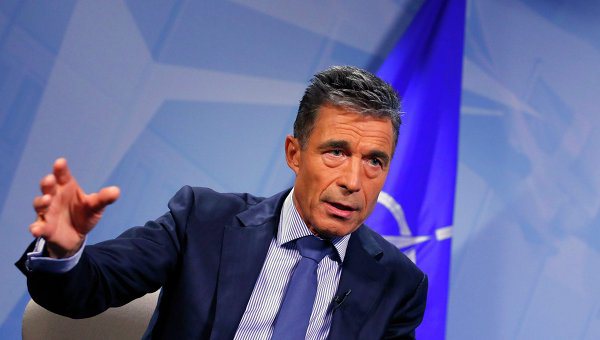Former NATO Secretary General Anders Fogh Rasmussen criticized the pace of European preparations for potential troop deployments in Ukraine, according to Radio Free Europe/Radio Liberty.
Despite claims of progress, only six participating countries, including the UK, France, and the Baltic States, have expressed willingness to contribute troops. Many other European nations voiced concerns about the mission’s mandate, objectives, and response to possible Russian escalation, emphasizing the need for clarity and US involvement before committing.
Rasmussen expressed concern that what he termed the "coalition of the willing" risks becoming a "coalition of the waiting," Radio Free Europe/Radio Liberty reports.
His comments reference British Prime Minister Keir Starmer's 2 March proposal at a London summit, where Starmer called for European leaders to increase defense spending, maintain military support for Ukraine, and establish a coalition to defend Ukraine and secure peace.
Despite multiple meetings at various levels since Starmer's announcement, key operational questions remain unanswered publicly. These include the mission's mandate, rules of engagement, and which countries would contribute troops.
So far, the UK officials stated that British troops deployed to Ukraine will focus on training Ukrainian forces rather than engaging in combat. While Prime Minister Sir Keir Starmer initially suggested a more direct deterrent role, Defense Minister John Healey clarified that UK and French troops—expected to number over 10,000—will be stationed away from the frontlines and concentrate on building up Ukraine’s armed forces.
"Usually in Europe we spend a lot of time on discussions and debates and put too little effort into actually taking action," Rasmussen told the outlet.
He expressed hope that Russia's invasion of Ukraine and Donald Trump's election would serve as catalysts for faster European action.
Following his NATO tenure, Rasmussen established the Alliance of Democracies, a nonprofit organization focused on countering what it describes as the global rise of authoritarian leaders. At the organization's Copenhagen Democracy Summit in mid-May, the group unveiled a five-point defense plan calling for European nations to increase military spending to four percent of GDP by 2028.
This proposal exceeds current initiatives by the European Union and major European military powers, which have announced plans to boost defense spending in coming years.
Some countries, such as Poland (4.12%), Estonia (3.37%), Latvia (3.26%), and Lithuania (3.12%), are already spending well above the NATO 2% benchmark, while others like Germany (2.12%) and France (2.06%) are increasing their budgets significantly. However, defense spending remains lower in southern European countries, with Italy and Spain still below the 2% target, though both have plans to increase their allocations in the coming years.
Rasmussen justified the ambitious spending target by noting Russia's current defense investment levels.
"Russia is now investing more in defense than all other European countries combined," he stated, arguing that Europe must "at least double European investment in defense."
The former NATO chief characterized Europe's previous security approach as no longer viable, describing it as "a combination of cheap energy from Russia, cheap goods from China, and cheap security from the United States."
Earlier, former Lithuanian Foreign Minister Gabrielius Landsbergis also sharply criticized the “coalition of the willing” for its lack of meaningful action in supporting Ukraine, arguing that despite grand declarations, the coalition failed to deliver substantial military aid, enforce crippling sanctions, or provide effective air defense and troop deployments.
Read also
-
Only 6 of 30 “coalition of willing” countries ready to send peacekeepers to Ukraine
-
The Times: “Coalition of the willing” for Ukraine struggles to materialize amid Europe hesitation
-
“Still no troops, no Taurus, no air defense for Ukraine”: Former Lithuanian minister torches Europe’s coalition of the willing

